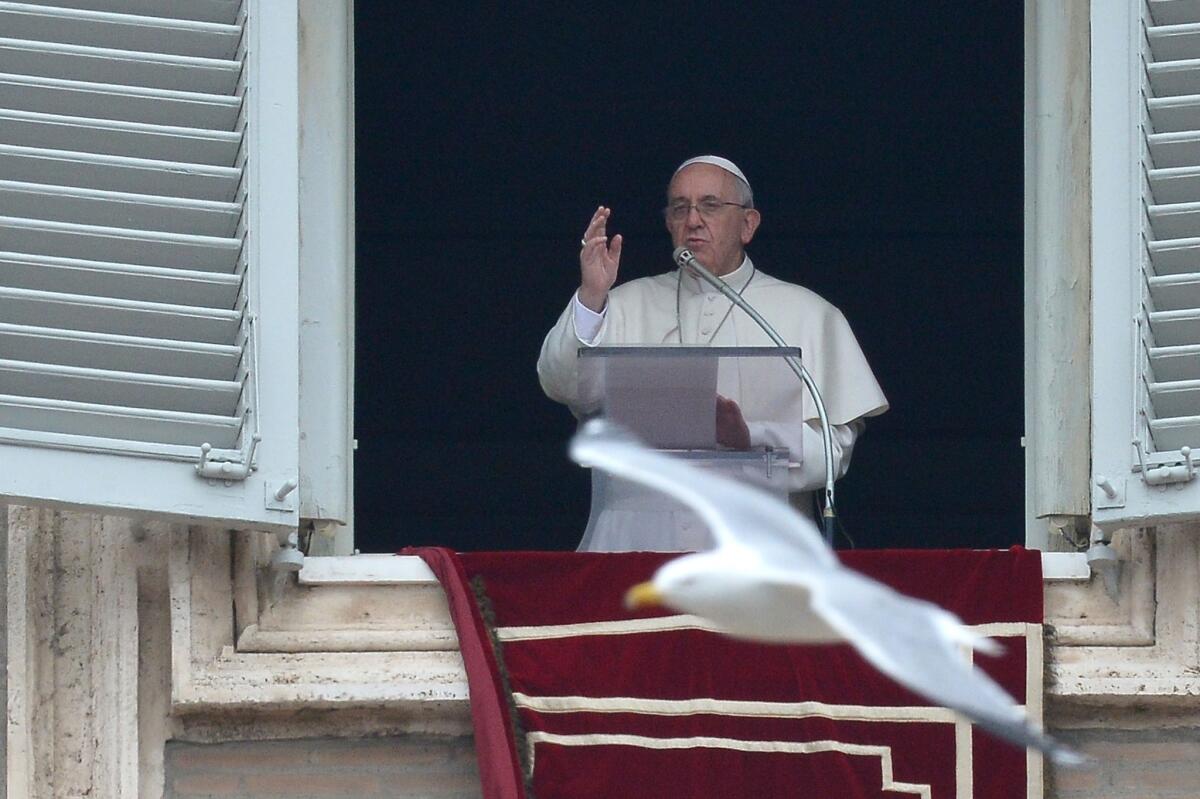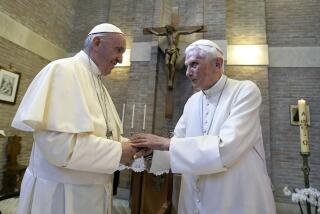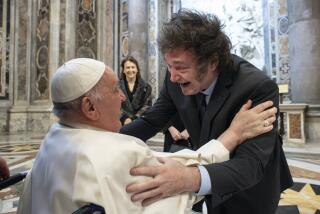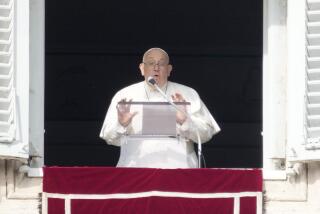The president, the pope and practical politics

President Obama is scheduled to visit Pope Francis at the Vatican on Thursday, and the meeting will probably take the usual form of encounters between presidents and pontiffs: a polite conversation about their common agenda on poverty and world peace, plus a gentle remonstrance from the Holy Father on abortion and religious liberty.
But if Obama and Francis had time to get to know each other, they might each benefit by trading notes on practical politics, as presidents and British prime ministers often do, and on the lessons they can draw from each other’s experiences.
They have this in common: Each made history with his election — the first African American president, the first Latin American pope. Each came to office to repair a deep crisis — one economic, the other institutional. Each was buoyed by astonishingly broad public support from liberals and conservatives alike.
And they are both political strategists, even if they lead very different institutions. “Beneath [Francis’] simple, humble exterior is the mind of an incredibly crafty and subtle Jesuit politician,” says John L. Allen Jr., the ace Vatican watcher who now writes for the Boston Globe.
But one year after his elevation, Francis, the former Cardinal Jorge Mario Bergoglio, is riding high in the polls. In a Pew Research survey this month, 85% of American Catholics said they have a favorable view of the pontiff, well above the 74% who admired his predecessor, Benedict XVI. Church leaders talk of a “Francis effect” that’s bringing fallen-away Roman Catholics back to the fold. “He has rebranded Catholicism,” wrote the Rev. Thomas Reese, a Jesuit writer. “Business schools could use him as a case study.”
Obama only wishes he still had such problems. A year and a half after his reelection, the president’s job-approval ratings are mired around 43%. The “Obamania” of 2008 is little more than a wistful memory. His attempt to rebrand American foreign policy has produced uneven results.
One reason Francis has remained so widely popular is that he hasn’t aimed to make sweeping changes in church doctrine, even in areas where his rhetoric has differed sharply from that of his predecessors. His caution has disappointed Catholic liberals, but most of them are still giving him the benefit of the doubt. He’s called for more openness toward gay people, for example, but he hasn’t proposed any formal changes in the rules. Instead, the pope has focused his energy on quietly reforming the Vatican’s mismanaged finances and autocratic governance — institutional changes that, if he succeeds, could transform the church.
Obama, by contrast, tackled comprehensive healthcare during his first term, something destined to be thorny and controversial.
Where Francis has opened the door to reforms, he has picked ones likely to be broadly popular. He has, for example, begun laying groundwork to allow Catholics who divorce and remarry to receive Communion, a change that would have been earthshaking a generation ago but now “is just low-hanging fruit,” Allen said.
Obama, too, initiated some broadly popular reforms — doing away with insurance denials because of preexisting medical conditions, say, and letting offspring stay on their parents’ health insurance longer — but many people lost sight of these measures amid the bigger, more disruptive Affordable Care Act.
Of course, Francis has a couple of huge advantages: He may have to deal with an entrenched Vatican bureaucracy, but he doesn’t have to worry about midterm elections or a balky Congress. A pontiff hasn’t been deposed since Eugene IV in 1439, and even he made a comeback a few years later. And in the sixth year of Obama’s tenure, it may be a bit unfair to compare him to a pope who, with barely a year in office, is still on his honeymoon.
But the president may nevertheless have some useful advice for the pontiff as well. Francis has worried that his image as a superstar has become a problem, distracting people from his Christian message. Obama, too, found that his early status as a global hero was distracting; when he won the Nobel Peace Prize early in his term, he knew the award was premature and unhelpful. His advice for the Holy Father might be: If Oslo phones, don’t take the call.
And despite the downsides, there was a reason Obama moved so quickly to pass healthcare reform: Even popes and presidents can’t know how long their popularity will last.
There was once a ritual at every papal coronation that we might want to adopt in Washington too. As a new pope began his first procession out of St. Peter’s, a priest knelt before him with a knot of smoldering flax and a warning that worldly fame is fleeting: sic transit gloria mundi.
Twitter: @DoyleMcManus
More to Read
A cure for the common opinion
Get thought-provoking perspectives with our weekly newsletter.
You may occasionally receive promotional content from the Los Angeles Times.







